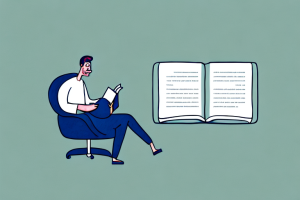Retirement. A time in life that many look forward to, envisioning days filled with relaxation and leisure. After years of hard work, it may seem tempting to just sit back, put your feet up, and do absolutely nothing. But is this really the best approach to retirement? In this article, we will explore the importance of staying active in retirement and discuss the various aspects of a fulfilling retired life.
The Importance of Staying Active in Retirement
Retirement is often seen as a well-deserved break from the daily grind. However, it is crucial to maintain an active lifestyle both physically and mentally during this phase of life. Staying active has numerous benefits, including improved physical health, increased mental well-being, and a sense of purpose. Engaging in regular physical activity not only keeps you fit and healthy but also lowers the risk of chronic diseases such as heart disease, diabetes, and certain types of cancer.
Mental stimulation is equally important in retirement. By keeping your mind sharp and engaged through various activities such as reading, learning new skills, or solving puzzles, you can improve cognitive function and reduce the risk of cognitive decline.
Another important aspect of staying active in retirement is maintaining social connections. Engaging in social activities and spending time with friends and family can help combat feelings of loneliness and isolation that can often accompany retirement. Joining clubs, volunteering, or participating in community events are great ways to stay socially connected and maintain a sense of belonging.
In addition to physical and mental well-being, staying active in retirement can also have financial benefits. By staying healthy and active, you may be able to reduce healthcare costs and potentially extend your retirement savings. Regular exercise and a healthy lifestyle can help prevent or manage chronic conditions, reducing the need for expensive medical treatments and medications.
Finding Balance: Exploring the Benefits of Leisure Time in Retirement
Retirement provides an excellent opportunity to enjoy leisure activities that were often put on the back burner due to work commitments. Engaging in hobbies, pursuing passions, and exploring new interests not only brings joy but also helps in maintaining a balanced lifestyle.
Leisure time in retirement allows for relaxation, rejuvenation, and self-reflection. It gives you the chance to slow down, appreciate the simple things in life, and recharge your batteries. By incorporating leisure activities into your retirement routine, you can strike a harmonious balance between active engagement and relaxation.
One of the key benefits of leisure time in retirement is the opportunity to improve physical and mental well-being. Engaging in activities such as walking, swimming, yoga, or even gardening can help maintain physical fitness and flexibility. Additionally, participating in mentally stimulating hobbies like reading, puzzles, or learning a new language can keep the mind sharp and enhance cognitive abilities.
Furthermore, leisure time in retirement provides a chance to connect with others and build social relationships. Joining clubs, attending community events, or volunteering for a cause you are passionate about can help you meet new people and form meaningful connections. Social interaction is essential for emotional well-being and can combat feelings of loneliness or isolation that may arise during retirement.
Debunking Retirement Myths: Why Productivity Matters Even After Retiring
One common misconception about retirement is that it signifies the end of productivity. However, staying productive in retirement is vital for personal growth and overall well-being. Productivity does not necessarily mean working a full-time job, but rather engaging in activities that provide a sense of accomplishment and purpose.
Retirement offers the opportunity to pursue new challenges, start a small business, or engage in volunteer work. By harnessing your skills and experience, you can continue to contribute to society while finding personal fulfillment. Productivity in retirement can foster a sense of satisfaction, boost self-esteem, and contribute to a meaningful and rewarding post-career life.
Another important aspect of productivity in retirement is maintaining mental and cognitive health. Engaging in activities that challenge the mind, such as learning a new language or taking up a hobby like painting or playing a musical instrument, can help keep the brain sharp and prevent cognitive decline. Research has shown that staying mentally active in retirement can reduce the risk of developing conditions like dementia and Alzheimer’s disease.
In addition to the personal benefits, staying productive in retirement can also have positive effects on the community and society as a whole. Many retirees choose to give back by volunteering their time and skills to charitable organizations or community projects. This not only helps those in need but also creates a sense of purpose and fulfillment for the retirees themselves. By staying productive and engaged, retirees can continue to make a meaningful impact on the world around them.
The Psychological Impact of Inactivity in Retirement
Choosing to do nothing in retirement can have detrimental effects on your mental well-being. Inactivity can lead to feelings of boredom, loneliness, and even depression. Without a sense of purpose and engagement, retirees may struggle to find meaning in their day-to-day lives.
It is crucial to recognize the psychological impact of inactivity and take steps to combat it. Engaging in social activities, pursuing hobbies, and maintaining relationships with family and friends are essential elements of a fulfilling retired life. By actively participating in the world around you, you can enhance your overall happiness and psychological well-being.
Maintaining Physical Health and Well-being during Retirement
Physical health should remain a priority even after retirement. Regular exercise and a healthy lifestyle are crucial elements in maintaining vitality and quality of life. Engaging in physical activities such as walking, cycling, swimming, or yoga can help keep your body fit and flexible.
In addition to exercise, maintaining a balanced diet and getting regular check-ups are important for overall health. By proactively taking care of your physical well-being, you can enjoy an active and fulfilling retired life, free from unnecessary health complications.
Embracing New Hobbies and Pursuits in the Golden Years
Retirement is the perfect time to explore new hobbies and interests. With more time on your hands, you can delve into activities that you’ve always wanted to try but never had the chance to pursue earlier in life.
Whether it’s painting, gardening, playing a musical instrument, or learning a new language, embracing new hobbies can bring immense joy and fulfillment. The golden years are an opportunity to rediscover yourself, develop new talents, and enjoy the simple pleasures that life has to offer.
The Social Aspect of Retirement: Why Engaging with Others is Essential
Retirement provides an ideal setting to build and strengthen social connections. Engaging with others is crucial for mental and emotional well-being, as it helps combat loneliness and isolation. By nurturing relationships with family, friends, and even making new connections, you can create a supportive and fulfilling social network.
Participating in community activities, joining clubs or interest groups, and volunteering are excellent ways to connect with others. The social aspect of retirement not only enhances your overall happiness but also provides a sense of belonging and purpose.
Financial Considerations: Making the Most of Your Retirement Years
While staying active and engaged in retirement is important, it is equally vital to plan your finances to make the most of your golden years. Taking stock of your financial situation, setting a budget, and ensuring a stable income are essential steps for a worry-free retirement.
Consulting with a financial advisor, exploring investment options, and making informed decisions about your pension or retirement savings can provide peace of mind. By managing your finances wisely, you can have the freedom and flexibility to enjoy a fulfilling retirement without unnecessary financial stress.
Overcoming the Fear of Idle Time: Strategies for a Fulfilling Retirement
Retirement can be a major transition, and for some, the idea of not having a structured routine can be daunting. Overcoming the fear of idle time is crucial for a fulfilling retirement experience. Instead of viewing retirement as a void to be filled, consider it as an opportunity to explore new possibilities and embrace a more flexible lifestyle.
Creating a structured routine that incorporates a mix of activities, social engagements, personal pursuits, and relaxation can help you make the most of your retirement years. By mapping out your days and weeks in advance, you can strike a balance between productivity and leisure, ensuring a contented and well-rounded retired life.
Maximizing Mental Acuity in Retirement: The Importance of Intellectual Stimulation
Retirement doesn’t mean the end of intellectual growth. In fact, it provides the ideal opportunity to pursue lifelong learning and intellectual stimulation. Engaging in activities such as reading, attending lectures and workshops, or enrolling in online courses can keep your mind sharp and active.
By challenging yourself intellectually, you can expand your knowledge, develop new skills, and stay mentally agile. Maximizing mental acuity in retirement is not only beneficial for cognitive function but also provides a sense of fulfillment and personal growth.
Creating a Structured Routine for a Happier and More Contented Retirement
Structure and routine can play a significant role in ensuring a happier and more contented retirement. While retirement offers the freedom to do as you please, it is essential to establish a routine that provides a sense of purpose and guidance.
Creating a daily schedule that includes activities such as exercise, hobbies, socializing, personal time, and relaxation can help you maintain a healthy balance in retirement. By having a structured routine, you can make the most of your time, maintain productivity, and find satisfaction in your retired life.
Rediscovering Your Passions: Pursuing Dreams Post-Retirement
Retirement is an opportune time to reconnect with your passions and pursue dreams that may have been set aside during your working years.
Whether it’s writing a book, traveling to new destinations, starting a new venture, or engaging in philanthropy, your retirement can be a chapter of life brimming with excitement and fulfillment. Rediscovering your passions and pursuing dreams post-retirement can bring a renewed sense of purpose and joy.
Volunteering Opportunities in Retirement: Giving Back to the Community
Retirement opens doors to countless volunteering opportunities that allow you to give back to the community and make a positive impact on the lives of others.
From mentoring youth, contributing to charitable organizations, or assisting local initiatives, volunteering can provide a sense of fulfillment and purpose. By sharing your skills, experiences, and time with others, you can leave a legacy and create a meaningful difference in the world around you.
Keeping Active at Any Age: Exercise Tips for Seniors in Retirement
Regardless of age, staying physically active is essential for overall health and well-being, particularly in retirement. However, it is essential to tailor exercise routines to suit the specific needs and capabilities of seniors.
Low-impact exercises such as walking, swimming, yoga, or tai chi can help improve flexibility, strength, and balance while minimizing the risk of injuries. Consulting with a healthcare professional or a qualified fitness instructor can ensure that you’re engaging in safe and suitable exercises, allowing you to enjoy an active and healthy retirement lifestyle.
In conclusion, while it may be tempting to embrace idleness in retirement, it is crucial to stay active and engaged. The benefits of a fulfilling retired life, including improved physical and mental health, a sense of purpose, and social connections, can only be achieved by actively participating in activities that bring joy, challenge, and growth. By making the most of your retirement years and exploring the multitude of possibilities that lie ahead, you can create a retirement that is not simply a phase of doing nothing but rather a chapter of fulfillment, growth, and countless adventures.



